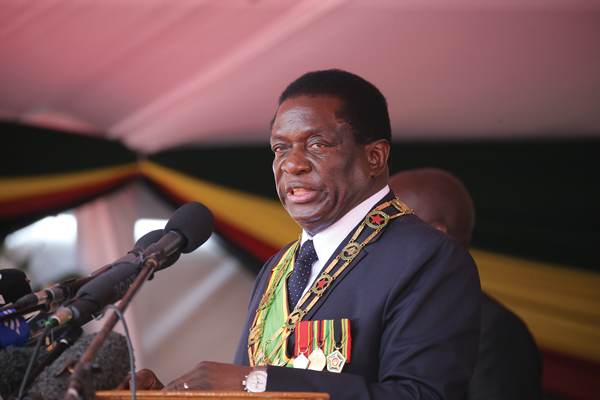
BY TATIRA ZWINOIRA
THE United Nations Development Programme (UNDP) Zimbabwe says in the absence of a robust social protection scheme, the government must devise ways to keep the informal sector open during the ongoing lockdown to slow down the spread of coronavirus.
President Emmerson Mnangagwa last week extended indefinitely the lockdown that began on March 30, with only established businesses allowed to operate.
The informal sector remains closed, putting thousands of jobs at risk and UNDP has now warned that the situation was not sustainable.
“In the absence of a robust social protection programme, and, especially, a Lifeline Fund or its variant to support small-scale traders and businesses in the informal sector, it is prudent to devise ways of keeping such businesses and even more established formal ones operational during the lockdown,” part of the latest UNDP Zimbabwe policy brief reads.
“A complete lockdown could lead not just to loss of income and jobs, but also social unrest.”
The policy brief — titled A Preliminary Assessment of the Socio-economic Impact of Coronavirus (Covid-19) on Zimbabwe — was released last week.
“The critical public investments in this regard should be aimed at providing basic social services such as running water and sanitation facilities in markets and ensuring strict adherence to the set hygiene practices, including use of face masks, regular handwashing/sanitisation and social distancing,” the UNDP added.
- Chamisa under fire over US$120K donation
- Mavhunga puts DeMbare into Chibuku quarterfinals
- Pension funds bet on Cabora Bassa oilfields
- Councils defy govt fire tender directive
Keep Reading
Over the past decade, Zimbabwe’s economic growth has been on the decline.
Last year, the economy contracted 8,4% and this year it is expected to decline by 7,4%, according to International Monetary Fund estimates.
UNDP said the Covid-19 pandemic would affect Zimbabwe’s fuel supplies, trade, tourism, diaspora remittances, household income, and food security.
“Continued contraction in the magnitude highlighted above, or more given the fragility of the economy, would be disastrous, affecting, disproportionately, the poor and vulnerable, small and informal businesses, as well as small-scale agricultural producers,” it added.
“Delayed imports of goods could increase shortages of basic consumer and intermediate goods and thus fuel further inflationary pressures in the country — imported inflation.
“These, together with wide currency fluctuations and possible rising debt in the wake of the increased demand for goods and services for effective response to the pandemic, could dampen growth further and discourage the much-needed investments.”
From the $18 billion stimulus package announced earlier this month, Treasury allocated $500 million to small to medium enterprises, and $2,4 billion as a food grant to support one million vulnerable people for a period of eight months. Beneficiaries of the food grant include 200 000 micro-enterprise owners.
UNDP Zimbabwe urged the government to mobilise additional resources in order to expand the available fiscal space and urged greater efficiency in the application of scarce resources.
This could be done by “curbing wastages, duplication and leakages given the limited scope for additional borrowing and huge inflows of external aid”.
“Relatedly, the government should address, as a matter of urgency, illicit financial flows from the country, especially from the extractive sector,” the policy brief reads.
“While the above measures would lead to enhanced domestic resource mobilisation, it is also evident that the response requires additional international support.
“Hence, there is a need for a well-coordinated aid architecture to be established as an integral part of the response.
“Such a robust aid architecture could also be leveraged to support the recovery agenda post the pandemic.”
According to various research reports, Zimbabwe is losing an average of US$1 billion to corruption, US$1 billion to smuggling and over US$1 billion to subsidies annually.











